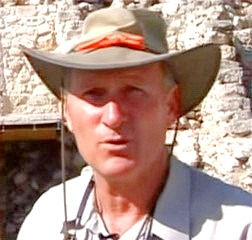Who Killed Rabin? Breaking Israel’s Biggest Taboo
- Shalom Pollack

- Nov 3, 2019
- 3 min read
![Illustration: Prime Minister Yitzhak Rabin meets in Casablanca with PLO Chairman Yasser Arafat (Image credit: Saar Yaacov/Government Press Office of Israel) [CC BY-NC-SA 2.0] via Flickr](https://static.wixstatic.com/media/599529_d1a1ba2e039340e687adba9b08b43ed6~mv2.jpg/v1/fill/w_980,h_551,al_c,q_85,usm_0.66_1.00_0.01,enc_avif,quality_auto/599529_d1a1ba2e039340e687adba9b08b43ed6~mv2.jpg)
Illustration: Prime Minister Yitzhak Rabin meets in Casablanca with PLO Chairman Yasser Arafat (Image credit: Saar Yaacov/Government Press Office of Israel) [CC BY-NC-SA 2.0] via Flickr
As we near the 24th anniversary of the assassination of former Israeli Prime Minister Yitzhak Rabin, political sensitivities are being awoken anew following a call for full disclosure.
The Left has never stopped using the annual memorial event in order to paint everyone who disagreed with him and his politics with a wide brush as accomplices in the murder at the least.
Rabin was the prime minister responsible for the revolutionary and intensely controversial Oslo Accords. These accords tore the country apart — and tore thousands of Jews apart quite literally in the ensuing Second Intifada terror war — from the moment that PLO Chairman Yassar Arafat was welcomed on a red carpet into our midst in 1993.
Yigal Amir, a law student at Bar Ilan University, shot Rabin in order to "stop Oslo.”
He was constantly incited to do so by a "close friend" — an official government agent provocateur named Avishai Raviv, better known by his code name "Champagne.” Raviv knew. He was silent. At the very least, he allowed it to happen.
Many questions have been raised about the incident itself. Questions were raised regarding the precise who, when, where, and the how of the deed. The questions are far better than the answers. Much of the information that was exposed before the court of inquiry is still sealed to this day.
Which brings us to the latest development in the case.
Dr. Mordechai Kedar, Professor of Middle East Studies at Bar Ilan University, announced he has seen information indicating that Yigal Amir might not have been the one who killed Rabin.

He explained that his information comes from a series of conversations he had with Dr. Nachum Shachaf, an award-winning physicist who has dedicated many years researching the Rabin assassination.
Just as interesting as Dr. Kedar’s statement is the response of the mainstream media and the "establishment," including his own Bar Ilan University. He is being labeled everything from a lunatic to a demon. Kedar’s university distanced itself from him, and has already canceled his participation in an academic conference abroad, saying “there is no place for such remarks in Israeli society.” Even Prime Minister Binyamin Netanyahu has chimed in to condemn Kedar for his “nonsense.”
Twenty-four years have passed and still any challenge to the "official" version of events is treated as "counter-revolutionary," just like in the good old Soviet Union.
How would an academic or anyone else be treated in the U.S. for challenging the accepted narrative on Abraham Lincoln's assassination, or that of John F. Kennedy? Weird, dumb, interesting — take your pick.
Grounds for killing a career, and being marked as an "enemy of the people"? Highly unlikely.
And yet that appears to be the case in today's Israel. Why? Because the Left has used the Rabin assassination as their permanent political and cultural weapon to silence anyone who does not support his "legacy."
For the Left, it is enough to simply mention the word “Rabin” in order to feel they have the moral high ground in any political debate. The "Right" killed him, and with him the "peace."
"If he had only lived all would have been perfect. Oslo was just about to prove itself,” they say, adding that the Right was too obtuse to understand that.
Dr. Kedar explained that according to the research to which he was exposed, the assassination was arranged by a "high-level politician" who feared that Rabin was about to turn his back on the Oslo process in the wake of its bloody results thus far.
One wonders, why are the files still sealed on the official investigation? Why indeed?
Thank you, Dr. Kedar, for shining a light not only on an open historical question, but on the reality of Israel today.

Contact Shalom Pollack, veteran licensed tour guide, for upcoming tours at Shalom Pollack Tours: Personalized Tours in Israel. Join him Monday, November 11 for an unusual opportunity to visit Joshua's Altar on Mt. Ebal. For information and details of upcoming tours, email him here. Click here to read more of this writer’s work in The Jerusalem Herald.
































Comments